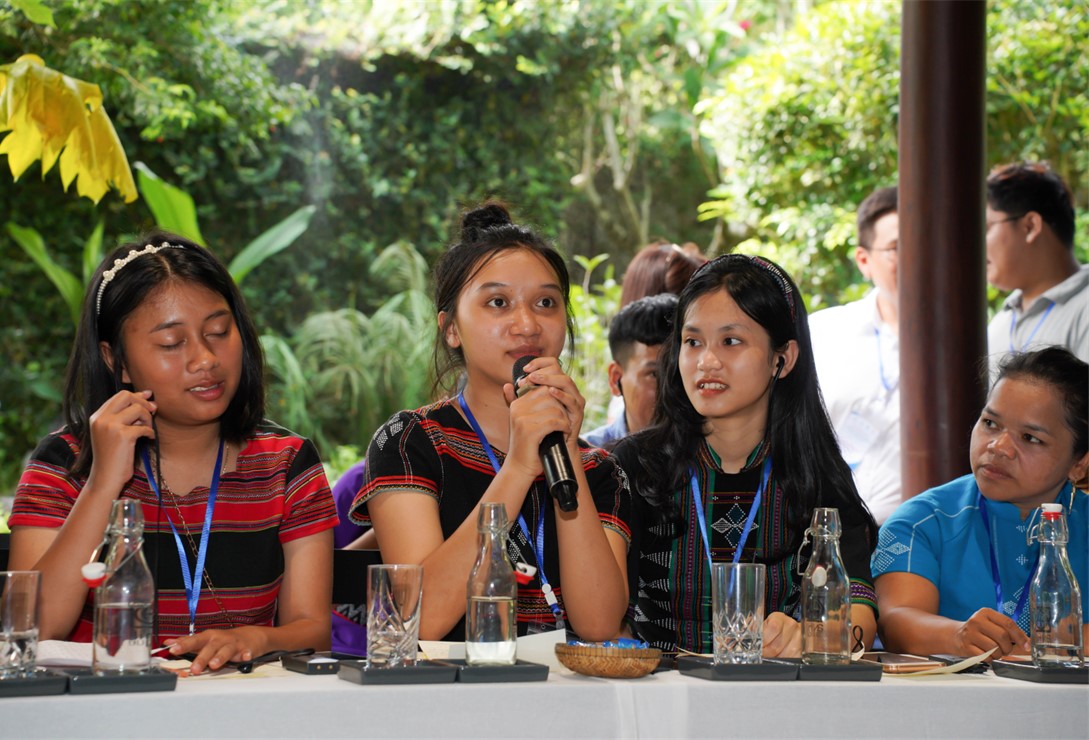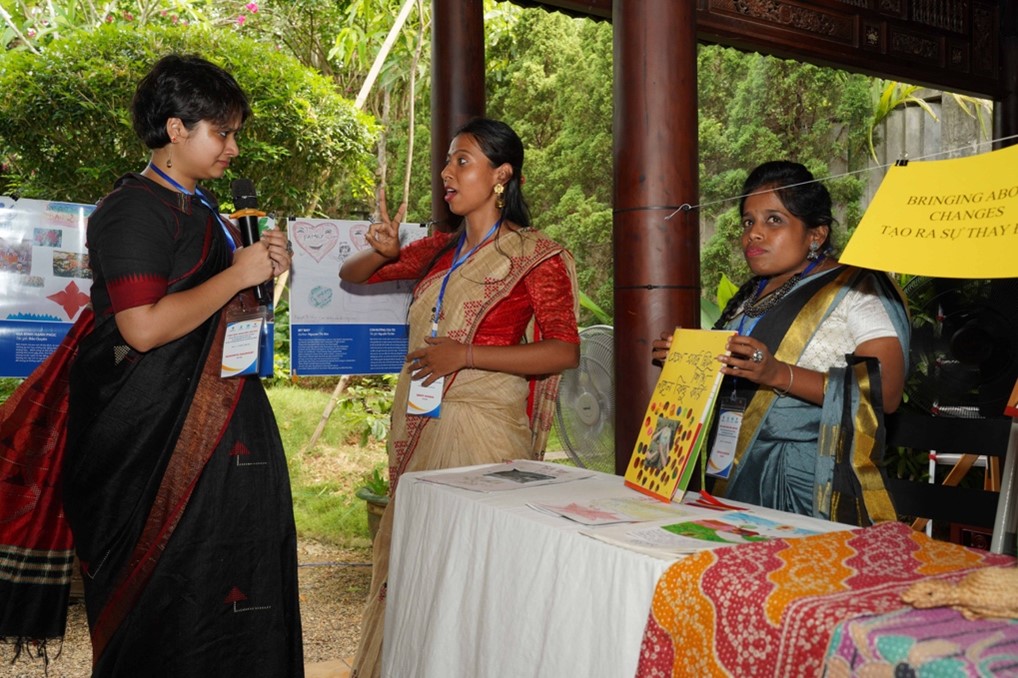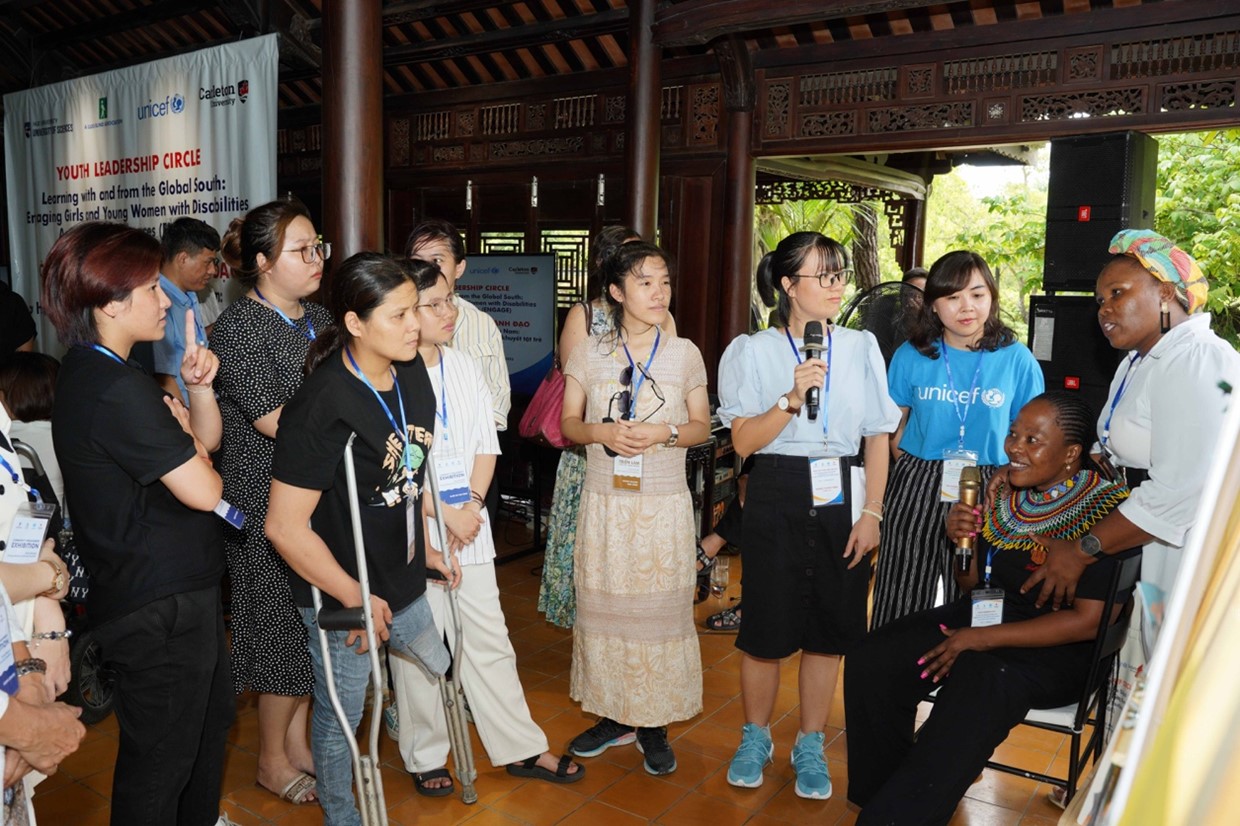Learning With and From the Global South
Building knowledge and activism with young women and girls with disabilities through ENGAGE’s Youth Leadership Circle
A research update from Xuan Thuy Nguyen, Associate Professor in the Institute of Interdisciplinary Studies at Carleton University. Prof. Nguyen is Project Director of the ENGAGE Partnership Development Project funded by the Social Sciences and Humanities Research Council of Canada (SSHRC).
On June 12-14, 2023, the SSHRC-funded Partnership Development Project, Learning with and from the global South: Engaging young women and girls with disabilities from Southern spaces (ENGAGE) organized a transnational workshop, namely the Youth Leadership Circle (YLC), in Hue City, Vietnam.
The YLC brought together 12 young women and girls with disabilities and their personal assistants from Empangeni, Kwa Zulu-Natal province, South Africa; West Bengal, India; and A Luoi district, Vietnam. The event was also joined by disability and youth activists in different provinces in Vietnam, along with the UNICEF staff and the ENGAGE research team, creating a transnational space for knowledge production and collective activism by young people with disabilities in the global South.

The YLC offered a unique opportunity for knowledge sharing and transnational engagement. Co-hosted by Carleton University, Hue University of Sciences, UNICEF Vietnam, and A Luoi Blind Association, along with access support from Carleton’s Accessibility Institute and the Feminist Institute of Social Transformation, this event brought together the collective efforts of academic institutions and disability communities across the global North and South in the development of a transnational learning network on leadership and activism.
The participants identified specific issues which they encountered in each context. They shared their issues with their peers and proposed solutions to address the identified problems. Some issues that were discussed at the YLC included gender-based violence, discrimination against disabled women and girls, barriers to their participation and inclusion in the media and other public spaces, and how to create accessible networks in their own contexts.

The YLC began with a collage-making activity, where each participant was invited to create their own collage to tell their stories of leadership and activism using different art-based materials. This activity was followed by talks delivered by Dr. Vo Hoang Yen, the founder and executive director of the Disability Research and Capacity Development Center (DRD), and Ms. Nguyen Thi Ngoc Tam, president of the Youth with Disabilities Club in Nam Dinh province.
Through their engagement with the disability activists, the girls and young women expressed great commitment and dedication to their learning journeys, engaging in different forms of knowledge production through artmaking, music performance and community building. Their artmaking activities also created an opportunity for building relationships and developing activism among participants.

Following the first day, the second day engaged the participants in a creative zine-making workshop entitled Bringing about Change. The young women and girls with disabilities from Vietnam, India and South Africa created zines — i.e. self-published booklets — that described the issues facing young women and girls with disabilities and identified their advocacy strategies, including strategies to make their community more accessible for themselves and their disability. The day ended with a music show performed by the participants, among whom are disabled artists and youth, accompanied by the guitar club from Hue University of Sciences.
The final day offered a shared learning space for building their activist agendas through a Disabled Girls’ Manifesto workshop, engaging the participants in creating a manifesto — a declaration created by young women and girls with disabilities at the YLC2023. Each group created their manifestos in the form of a short video or a written statement.

Following the art creation, we created an exhibition to showcase the artwork made by the participants with local community members, in so doing facilitating dialogues within and beyond different communities.
The workshop participants built their relationships through different forms of communication, languages and cultural expressions. At the end of each day, the participants reflected on their collective aspirations and set goals for their future, which set the roadmap for their leadership journeys.

By learning to express themselves and communicate with one another through forms of art, including collage and zine making, the participants were provided with creative and imaginary spaces for building their knowledge, in so doing re-imagining their leadership and activism.
The development of this decolonial learning network is critical for connecting young people with disabilities in historically colonized spaces, in order to build transnational solidarity among young women and girls with disabilities across disadvantaged communities in the global South.
To learn more, visit the Decolonial Disability Studies Collective’s website at carleton.ca/ddsc